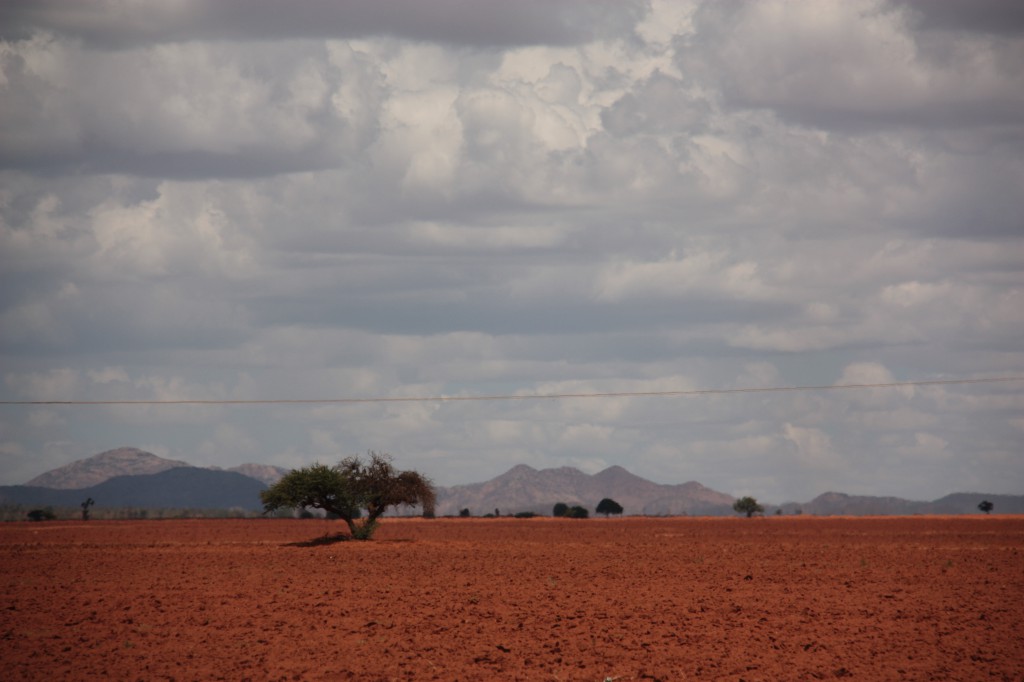I’ve been on the colonies for a few days now…feels like a year. I’ve met an awful lot of awfully good people, my German has improved, and I’ve figured out which cafes serve good pie. It’s been the way I hoped it would be…one person introduces me to two more, and they all have stories to tell. It all began with Abram Siemens, who was my school principal in GR 5-6. He has the most well known radio show in the area and also publishes the Deutsch-Mexikanische Rundschau newspaper. From his first introductions I’ve been busy from morning to night, chasing down and visiting with all the contacts I’ve made. I’ve spent most of my time with the more “modern” groups so far, that’s just the way it’s been. I expect to hit the road again on Monday morning, or maybe Tuesday. I’ll see how things go today and then decide.
I can’t, and won’t, tell all the stories here, cause then you wouldn’t buy the book when it comes out. However, I’ll share a newspaper clipping with you. This issue has been a very hot topic around here in the past 2 weeks and I’ve tried to get some video and stories about it as well.
OOSKAnews
Mexican Mennonites Call for End to Hostilities Over Contested Wells and Dams
20 Jul 2012
Mexico, CHIHUAHUA — Mennonite communities in Mexico’s drought-stricken Chihuahua state last week called on authorities to put a stop to aggression against them over alleged illegal dams and wells.
The groups said they had been targeted by members of agro-political groups like the Barzonistas, a movement of low and lower middle class private business and farming interests, and the Democratic Farmer’s Front (FDC). The Mennonites said members of these groups have destroyed their dams and wells.
The communities asked the state government to stop providing the equipment used to destroy their wells and dams (they say the equipment came from the state Secretary General of Government and Rural Development), and to return the equipment the Barzonistas and FDC confiscated from them.
The Mennonites claim that representatives of organizations such as the National Water Commission (Conagua) and the Federal Attorney for Environmental Protection (Profepa) in the area are usually taking orders from the Barzonistas and the FDC.
Those destroying the wells and dams accuse the Mennonites of taking the water illegally. In late June, Fernando Vázquez Ramírez, president of the municipality of Ahumada, accused Mennonites of digging approximately 100 illegal wells in Chihuahua, and requested an investigation into the issue.
Those destroying the water infrastructure do not know if they are legal or not, the Mennonites have said.
Local Conagua director Sergio Cano Fonseca said that the Mennonites may have purchased false permits for wells, since the permits they have presented were not issued by Conagua.
He said the groups were paying as much as $1,000 USD for each of these permits. There have been higher sales of false permits during the current drought, he noted.
Mennonite leaders counter that Conagua sold them false permits for $35,000 USD, and false titles for wells for $40,000 USD. They complain that they have repeatedly tried to make deals with Conagua, but were forced instead to work with intermediaries.
Conagua plans to destroy 23 Mennonite dams. They have already destroyed one with a capacity of 55,000 cubic meters, which was at 15 percent capacity. Roads and crops were also destroyed in the process, reported El Heraldo de Chihuahua.
In parts of Chihuahua state, it has been illegal to construct dams without permission since 1957.
Following the request for assistance from the Mennonite communities, Chihuahua’s secretary general of government, Raymundo Romero Maldonado, ordered a halt to Conagua’s operation to destroy dams. He said that if Conagua’s Chihuahua branch did not have the power to stop this, he would go to the central government. Destruction of wells and dams was the responsibility of federal authorities, not the state government, he added.
Romero Maldonado said that he had met with Mennonite leaders, and they signed an agreement that would give the groups more time to gather documentation, and require Conagua to get the proper paperwork to determine if a particular structure is legal before starting an operation to demolish it.
Cano Fonseca accused the Chihuahua government of helping drilling illegal wells, which prompted Romero Maldonado called him a ”liar.”
The Barzonistas, angry at being excluded from the meeting between Romero Maldonado and Mennonite leaders, said they would march in the streets of Buenaventura, demanding a meeting with State Governor César Duarte and federal officials.
They warned that the Mennonites had made the truce with the government, not with them, according to El Heraldo de Chihuahua.
The Mennonites may call on US and Canadian authorities to pressure the Mexican government into protecting them.
There are approximately 80,000 Mennonites living in Mexico.


 Follow
Follow